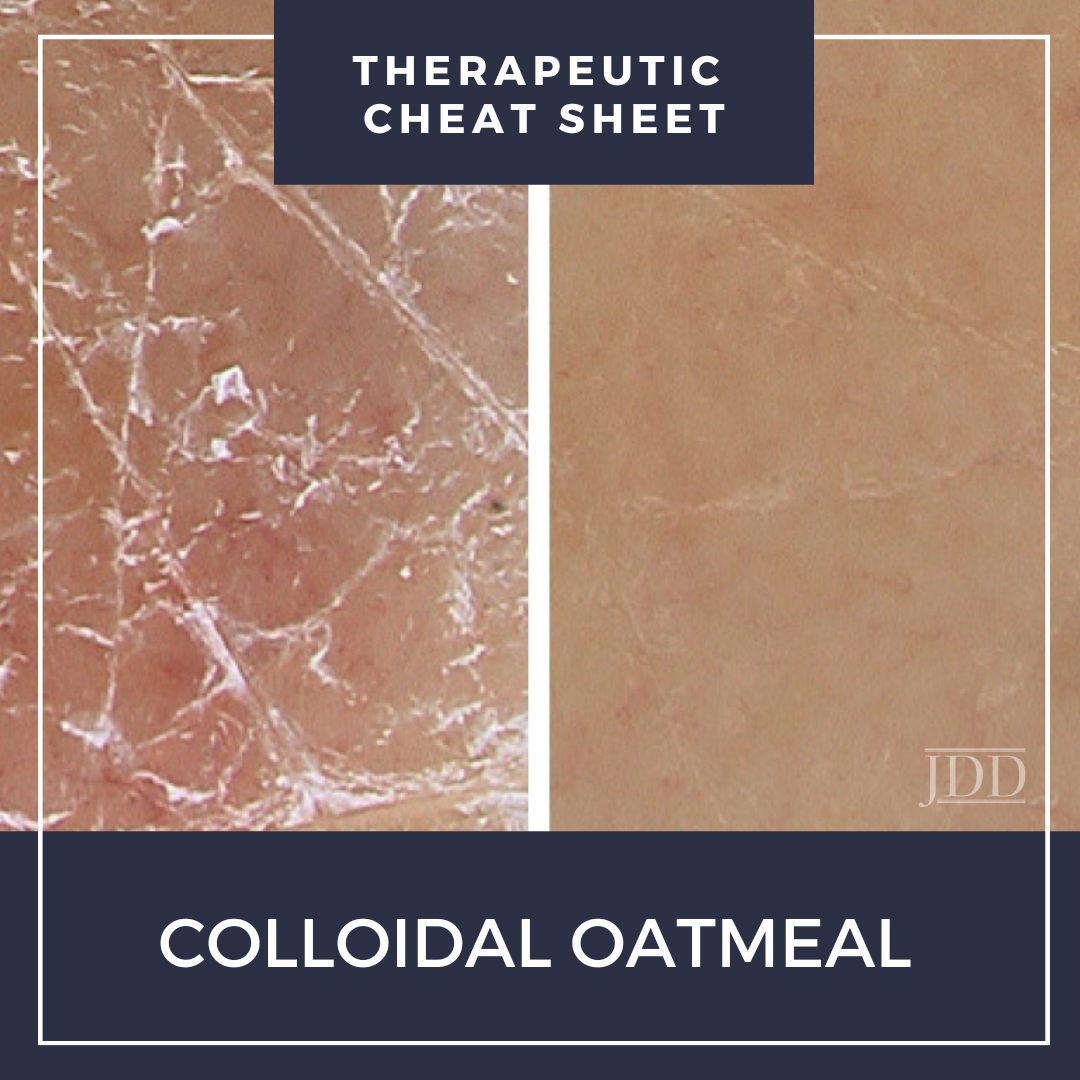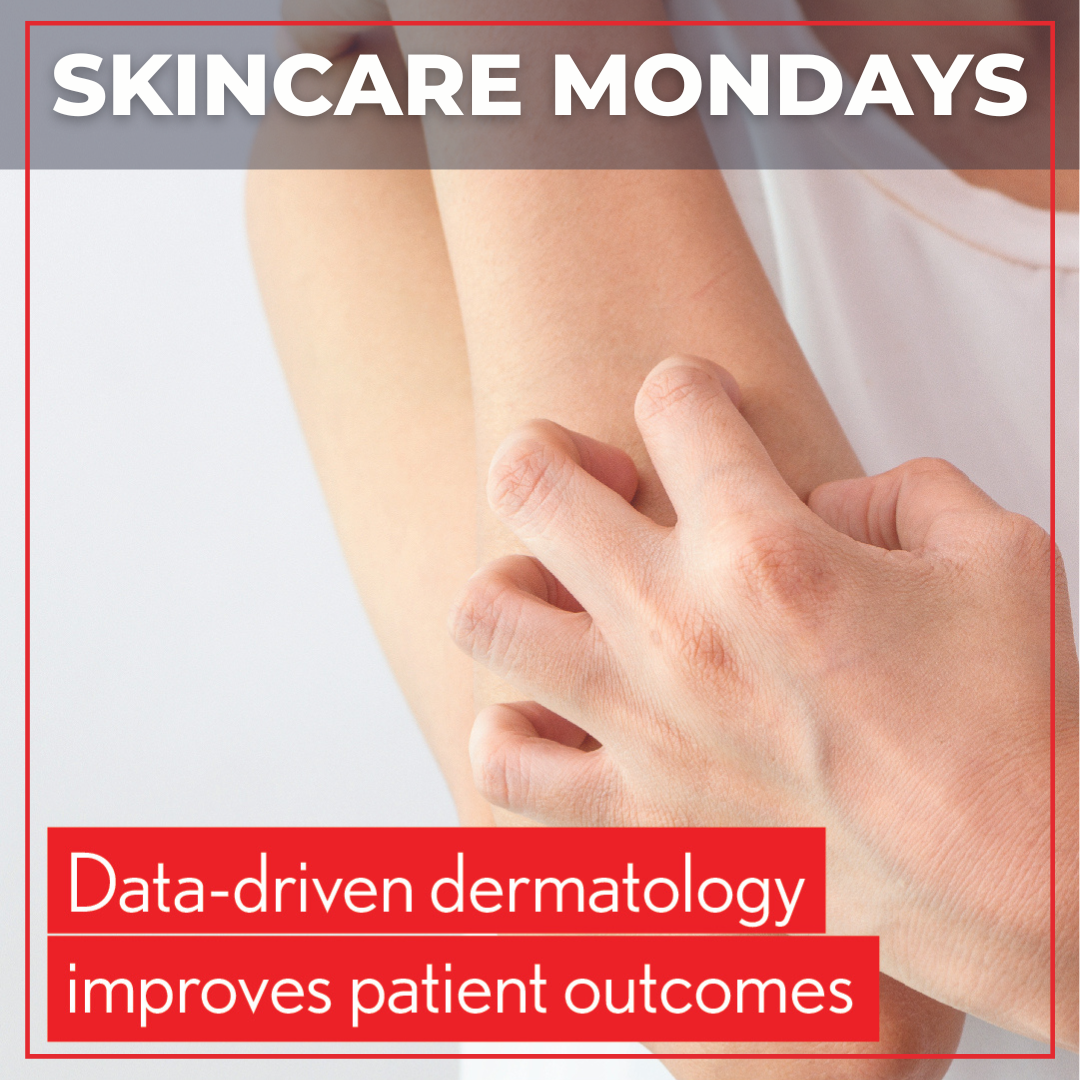Skincare Mondays | Oat for Oncology Patients
 Dermatologic side effects are among the most frequent unexpected side effects of cancer treatments.1,2 Targeted therapies are associated with a lower incidence of systemic adverse events, but a higher incidence of dermatological AEs - including acneiform rash and pruritus.3
Skin toxicities can have a dramatic negative impact on QOL and overall success of treatment therapies.3
Skin toxicities oft …
Dermatologic side effects are among the most frequent unexpected side effects of cancer treatments.1,2 Targeted therapies are associated with a lower incidence of systemic adverse events, but a higher incidence of dermatological AEs - including acneiform rash and pruritus.3
Skin toxicities can have a dramatic negative impact on QOL and overall success of treatment therapies.3
Skin toxicities oft …
 Dermatologic side effects are among the most frequent unexpected side effects of cancer treatments.1,2 Targeted therapies are associated with a lower incidence of systemic adverse events, but a higher incidence of dermatological AEs - including acneiform rash and pruritus.3
Skin toxicities can have a dramatic negative impact on QOL and overall success of treatment therapies.3
Skin toxicities oft …
Dermatologic side effects are among the most frequent unexpected side effects of cancer treatments.1,2 Targeted therapies are associated with a lower incidence of systemic adverse events, but a higher incidence of dermatological AEs - including acneiform rash and pruritus.3
Skin toxicities can have a dramatic negative impact on QOL and overall success of treatment therapies.3
Skin toxicities oft … Continue reading "Skincare Mondays | Oat for Oncology Patients"


 Atopic dermatitis (AD) is a chronic skin condition characterized by pruritus, inflammation, and acute flare-ups of eczematous lesions over dry skin.1 The wide range of clinical manifestations, the visible nature of the disease, and the intense itching significantly affects patients’ quality of life.2 Up to 80% of children with AD experience sleep disturbances.3 Sixty-seven percent of children …
Atopic dermatitis (AD) is a chronic skin condition characterized by pruritus, inflammation, and acute flare-ups of eczematous lesions over dry skin.1 The wide range of clinical manifestations, the visible nature of the disease, and the intense itching significantly affects patients’ quality of life.2 Up to 80% of children with AD experience sleep disturbances.3 Sixty-seven percent of children …  Oatmeal has been used as a skin care ingredient since 2000 BC in ancient Egypt, where whole oats were used in soothing baths. Colloidal oat has been the subject of dedicated skin care research starting in the 1950s. After > 30 clinical studies comprised of over 3000 patients including conditions associated with a compromised skin barrier, colloidal oat is now recognized as a skin protectant by …
Oatmeal has been used as a skin care ingredient since 2000 BC in ancient Egypt, where whole oats were used in soothing baths. Colloidal oat has been the subject of dedicated skin care research starting in the 1950s. After > 30 clinical studies comprised of over 3000 patients including conditions associated with a compromised skin barrier, colloidal oat is now recognized as a skin protectant by …  Colloidal oatmeal has a long history of use in the treatment of dermatologic disease. Oat is composed of various phytochemicals which contribute to its wide-ranging function and clinical use in atopic dermatitis and other skin conditions resulting from an impaired skin barrier and inflammation.
OAT COMPOSITION & BENEFITS
The main components of colloidal oatmeal are polysaccharides (including …
Colloidal oatmeal has a long history of use in the treatment of dermatologic disease. Oat is composed of various phytochemicals which contribute to its wide-ranging function and clinical use in atopic dermatitis and other skin conditions resulting from an impaired skin barrier and inflammation.
OAT COMPOSITION & BENEFITS
The main components of colloidal oatmeal are polysaccharides (including …  Data-Driven Dermatology Improves Patient Outcomes
The use of real-world data and real-world evidence to inform health care decisions is increasing. While randomized controlled trials (RCTs) are still the gold standard for evidence-based medicine, the strict inclusion/exclusion criteria and tightly controlled conditions limit their generalizability to real-world clinical practice. Real worl …
Data-Driven Dermatology Improves Patient Outcomes
The use of real-world data and real-world evidence to inform health care decisions is increasing. While randomized controlled trials (RCTs) are still the gold standard for evidence-based medicine, the strict inclusion/exclusion criteria and tightly controlled conditions limit their generalizability to real-world clinical practice. Real worl …